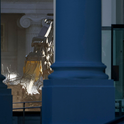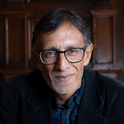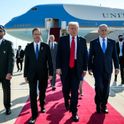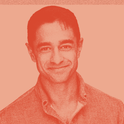On 11th January in France, a nation took to the streets, moved to the core by the massacre of journalists, the murder of policemen and the slaughter of Jews. In a country so obsessed with itself, endlessly questioning its history and its purpose in the world, dissecting its own decline and fall with undisguised relish, the traumatic few days that followed the murderous assault on the satirical magazine Charlie Hebdo have produced a miracle of sorts: the French have come to terms with themselves. Marvelling at their own resolve and energised by shared indignation, they stopped moaning long enough to celebrate basic democratic values and realised in the process how strongly bound to one another they actually are.
Although they are disillusioned with politics, the French people prevailed upon their politicians to behave, at least for a few days. The Socialist Party almost fumbled the opportunity, quarrelling over the participation of the Front National (FN) in the huge march in Paris, before President François Hollande made it clear that all were free to take part. In the event, the leader of the FN, Marine Le Pen, who had expected (and perhaps hoped) to be ostracised by the mainstream political elite, decided to demonstrate on her own in a small town in Provence, a region that has become the FN’s home turf. In cities, towns and villages across France, 3.7m people marched without incident.
The French people also discovered that they have a President. The man they elected to the Elysée in 2012 may have been the most unpopular incumbent of the post in recent history, he may be blamed for the economic slowdown, mass unemployment and punitive taxes, and he may have been ridiculed for not knowing how to play the part of the Republican monarch—but his performance in such dramatic circumstances was faultless. The same can be said of Manuel Valls, the Prime Minister, and Bernard Cazeneuve, the Minister of the Interior.
Former President Nicolas Sarkozy and his rivals on the centre-right also caught the mood and contributed to an unprecedented moment of national unity. The French political class looked better than it has done for some time. They were all there, side by side, when the President welcomed political leaders and heads of state from all over the world eager to pay tribute to democracy—even if, in some cases, they happily stamp on it at home.
As Hollande said, Paris was the capital of the world, and the French revelled in the spotlight. Did this not show that France still has a message to deliver to the world, that French exceptionalism is not dead and that the cry of “liberté, égalité, fraternité” still resounds in all languages?
Euphoria may have overtaken grief for a moment, but an acute awareness of the frailties of the French society and its bloated, over-manned state apparatus remains. Valls acknowledged major shortcomings in the intelligence system that had allowed home-grown terrorists to plot and perpetrate their crimes despite having previously been under surveillance by the domestic intelligence services. The threat level remains at its highest and the army has been called in to reinforce security.
Should there be a Patriot Act “à la française,” as some politicians have argued? More laws in a country that is already a world champion in regulation and legislation, and where racism, anti-Semitism and “apology” for genocide have been outlawed for some time? Are the French willing to surrender more of their sacred individualisme and accept more video surveillance in the streets, more wiretapping of their conversations, more armed forces in the streets?
A kind of utopia may have settled in the country during that January weekend, but no “sacred union” will last forever (a front page headline in Le Monde on 15th January asked: “National unity until when?”)—despite Nicolas Sarkozy’s call for a bipartisan inquiry into the causes of the terrorist attacks. Both far right and far left, united in their rejection of le système, have been quick to dismiss any notion of common priorities. And the mainstream political debate will no doubt become sour again pretty quickly, especially at a time when there is such pervasive distrust of the country’s elites.
There are some harsh facts about the very fabric of French culture and society that cannot be ignored. France is a deeply secular society. Since the Republic won its struggle with the Catholic Church at the beginning of the 20th century (a law enshrining the separation of church and state was passed in 1905), religion in France has been a strictly private affair. The French state is the warden of each individual’s right to believe, or not to believe, in a faith of his or her choosing. For generations, humourists have poked fun at the Pope, at the clergy, at Jesus and the Virgin Mary—all this was tolerated in the name of freedom of expression. At Charlie Hebdo, anti-clericalism and sex, in that order, were our murdered friends’ main obsessions.
Then came Islam. The first waves of immigrants from North Africa, who arrived in the 1950s, were mostly not religious people. In the years following that initial influx, no government showed any interest in the funding and ideology of Sunni religious schooling, which became a battleground for rival Algerian, Tunisian, Moroccan and later Saudi interests. Very few mosques were built and so Islam went underground. Later, the second and third generations of French-born children of the original North African immigrants started looking to religion as a means of forging their own identity. Nevertheless, integration or assimilation, rather than the recognition of “diversity,” was the key principle of French immigration policy. What the French call communautarisme, or multiculturalism, seen as a distinctively Anglo-Saxon wrong turn, was rejected.
In 2003, Sarkozy, then Minister of the Interior, created a “Council of French Islam,” but it was criticised for not being truly representative. In the meantime, the internet and the radical preachers who proliferate on it have transformed the traditional patterns of proselytism. Paranoia and conspiracy theories of all kinds flourish on social media. Anti-Semitism is also part of this toxic cocktail, as several disturbing recent incidents have shown. For instance, shortly before Christmas 2014, a young Jewish couple was beaten up in a Paris suburb by two men who wanted to take their money: “ You are Jews,” they were told. “You must be rich!” Dieudonné M’bala M’bala, a comic actor who began his career making anti-racist jokes, has become a champion of this cause and a hero in the banlieues—the suburbs, often deprived areas. Some of his shows, in which he mocks the Jews and calls for racial cleansing, have been banned by the authorities. And while the rest of the country was marching in solidarity with Charlie Hebdo, Dieudonné posted a message on Facebook (later taken down) declaring, “I am Charlie Coulibaly!”, an approving reference to the man who murdered four Jews at a kosher grocery store in eastern Paris two days after the Charlie Hebdo massacre. On 14th January, the comedian was remanded in custody after magistrates in Paris had opened an inquiry in order to establish if he was guilty of the crime of being an “apologist for terrorism.” “Are we really in the country of freedom of expression?” one of Dieudonné’s lawyers asked bitterly—as if he did not know about laws forbidding the promotion of terrorism, racism and anti-Semitism.
There are, of course, many people of immigrant origin in France who work hard to escape social ghettos and succeed, particularly young women. But there is another route for the disaffected young denizens of the banlieues—to radicalisation—the staging posts on which are unemployment, drug trafficking, anger, exclusion and crime. French prisons have become the religious training grounds for an entire generation of juvenile delinquents from the banlieues—the itineraries of Coulibaly and the Kouachi brothers, the Charlie Hebdo killers, are cases in point.
This is the context in which the FN has grown into a major political force. The party’s founding leader, Jean-Marie Le Pen, nostalgic for the Algerian war if not for the Vichy regime, cultivated for decades an overt anti-Semitism and vilified all foreigners (by which he meant anyone who couldn’t vouch for generations of French citizenship). But his daughter, Marine, now leader of the FN, has adroitly changed the party’s focus. There is no more mention of the Jews—papa’s outbursts on the subject have become a political embarrassment. Instead, Marine’s strategy is to praise la République and la laïcité (secularism). As she sees it, there is no point in letting the “UMPS,” the FN’s name for the traditional political parties of centre-left and centre-right, monopolise the secular tradition.
“I am not Charlie, I am Charles Martel!” Jean-Marie Le Pen blurted out on the day of the big march. He was referring to Charlemagne’s grandfather, who defeated the Arabs at Poitiers in 732 AD. “Isn’t that typical of the Charlie spirit, humour, insolence and all?” Marine quipped. Her party’s Vice-President, Florian Philippot, a polished former civil servant trained at the elite École Nationale d’Administration, said bluntly that nobody gave a damn anymore about what the old man said.
Although her father, now 86, may disapprove openly of his daughter’s strategy (even going so far as threatening to stand in forthcoming regional elections), Marine’s position at the head of the party is uncontested. She has managed to transform the FN into a major political force, getting more of its candidates elected to municipal office than her father ever did. She will run for the presidency in 2017 and some polls give her a chance of winning.
On 8th January, the day after the slaughter at Charlie Hebdo, and the day before the killings at the kosher grocery, teachers in many suburban classrooms were unable to impose a moment of silence in tribute to the dead. “They insulted the Prophet,” the kids said, referring to the dead cartoonists. “The Gauls are not our ancestors,” they insisted, a reference to a famous slogan used for generations in French school textbooks.
Many European countries today, whatever their approach to immigration, are having to deal with the tensions of multiculturalism and the rise of populism. They all face the threat of radical Islamist groups converting desperate youths to their cause, training them in Yemen or in Syria and then sending them back home to vanish in the depths of our free societies. There is no easy solution to this new phase of terrorist strategies against our democracies.
In France, where words tend to matter more than facts and sometimes take the place of solutions, there is great unease about identifying radical Islam as a threat to society. The situation is all the more confused since it is illegal to ask a French citizen any question about his ethnic origin or religious affiliation. As a result, there is no proper census, and the number of Muslims in the country (currently put at between four and five million) is only an estimate.
Immigration, unemployment, fear of sliding down the social scale, globalisation and a loss of confidence in the elites are among the many factors contributing to the pervasive mood of pessimism in France. So far, the far-right have been its principal beneficiaries. The title of Eric Zemmour’s bestselling book sums it up best: The French Suicide. A talented, if angry journalist, Zemmour has cleverly exploited some of the most controversial themes of the day—the legacy of May 1968, feminism, homosexuality, single parenthood, not to mention the good old days of Vichy. Born into a Jewish family from Algeria, he writes that Marshal Pétain, the fatherly figure who presided over the Vichy regime, actually protected the country, including French Jews, from evil. Zemmour loves controversy and poses, to his considerable profit, as a beacon of populism. Edited with the help of one of Marine Le Pen’s advisors, his book has sold over 400,000 copies. “Thank you for allowing us to speak out what we had in mind for so long and didn’t dare say aloud!” people tell him when they meet him the street.
Zemmour’s themes are echoed by two other members of the French intelligentsia who nurture the same obsessions. Denouncing Jews and Arabs alike, the prolific writer Renaud Camus poses as a protector of true “civilisation,” as does the philosopher and essayist Alain Finkielkraut, who is mesmerised by a notion of national identity that is threatened, in his view, by mass immigration from the Muslim south.
Yet nothing can be more provocative than fiction. The night before the attack on Charlie Hebdo, the novelist Michel Houellebecq was interviewed on national television about his latest novel, Soumission (“Submission”), which even the President said he intended to read. The book is set in the year 2022, when France elects a Muslim President who will enforce conversion and impose sharia law on all citizens, starting, naturally, with women. To the delight of Houellebecq’s publisher, a heated debate immediately started between those who denounced the book for fuelling Islamophobia and those, such as his fellow novelist Emmanuel Carrère, who emphasised its ambiguity and perversity, and the way it artfully revives memories of those moments in history when the French did indeed prefer to submit rather than fight. However, since 7th January, the day of the assault on Charlie Hebdo, Houellebecq has been more discreet, while his publisher is under police protection.
Voltaire, meanwhile, is alive and well. Not only was the philosopher’s name hailed in the streets of Paris more than two centuries after his death, but his Treatise on Tolerance, published in 1762, is so much in demand that it is being reprinted. As for, Charlie Hebdo, the first issue of the magazine to be published after the massacre sold over three million copies. But the most encouraging thing of all was a sign I saw in the hands of a bearded young man on the march in Paris which read: “ I am a Muslim and I am Charlie.” France may well become a stronger nation again.
[gallery ids="28144,28145,28146,28147,28148,28197,28196,28194"]












